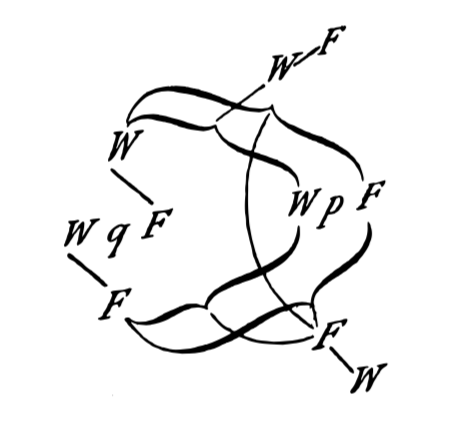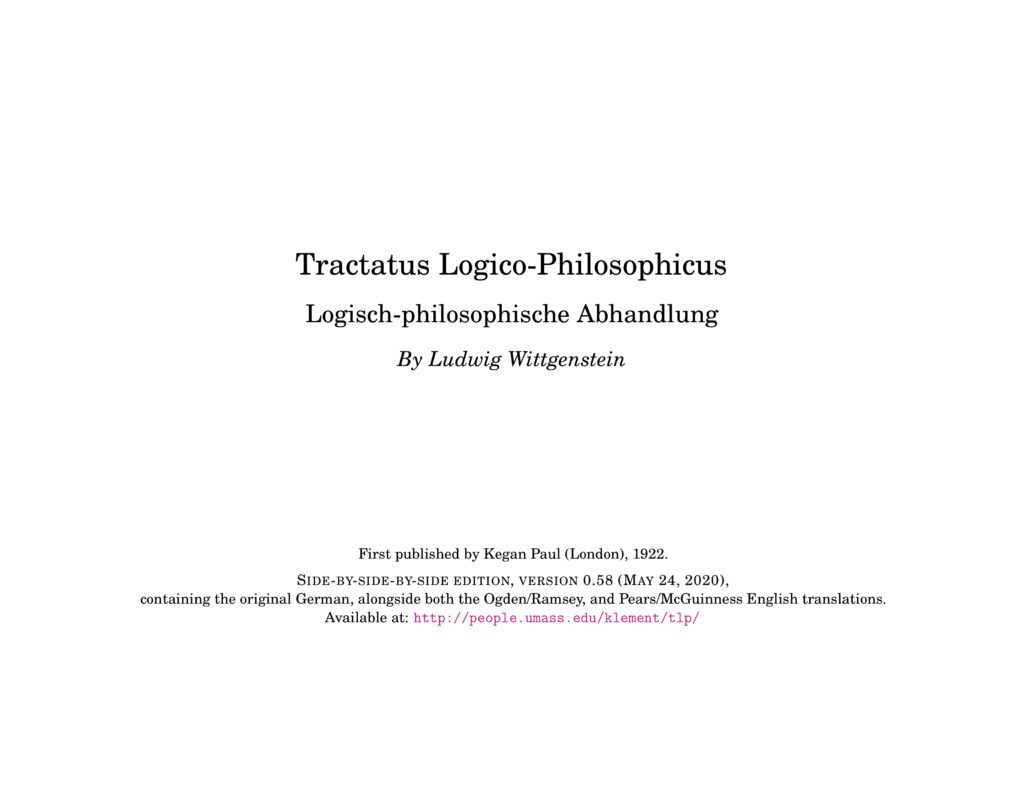
Wittgenstein, Tractatus Logico-Philosophicus
The Tractatus Logico-Philosophicus (Latin for Logical Philosophical Treatise or Treatise on Logic and Philosophy) is the only book-length philosophical work by the Austrian philosopher Ludwig Wittgenstein that was published during his lifetime. The project had a broad goal: to identify the relationship between language and reality and to define the limits of science. It is recognized by philosophers as a significant philosophical work of the twentieth century.
Wittgenstein wrote the notes for the Tractatus while he was a soldier during World War I and completed it during a military leave in the summer of 1918. It was first published in German in 1921 as Logisch-Philosophische Abhandlung. The Tractatus was influential chiefly amongst the logical positivist philosophers of the Vienna Circle, such as Rudolf Carnap and Friedrich Waismann. Bertrand Russell’s article “The Philosophy of Logical Atomism” is presented as a working out of ideas that he had learned from Wittgenstein.
Download
Wittgenstein_Tractatus Logico-Philosophicus.pdf
Wittgenstein_Tractatus Logico-Philosophicus.txt
Wittgenstein_Tractatus Logico-Philosophicus.html
Wittgenstein_Tractatus Logico-Philosophicus.jpg
Wittgenstein_Tractatus Logico-Philosophicus.zip



